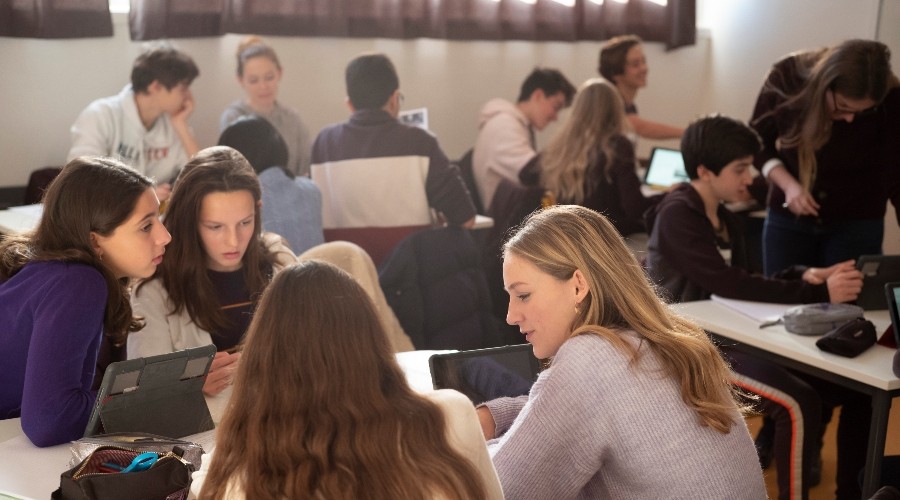The Role of Baccalaureate Exams in Shaping Romanian Education

Romania has a long-standing tradition of emphasizing the importance of education, and one crucial aspect that plays a significant role in shaping the country’s educational landscape is baccalaureate exams. These rigorous tests are not only an essential part of the academic journey but also serve as a stepping stone towards higher education and career opportunities. In this blog post, we will dive into how baccalaureate exams have impacted Romanian education and explore their significance in preparing students for success both academically and professionally. subiecteevaluarenationala 2023
Introduction to the Baccalaureate Exam in Romania
In Romania, the baccalaureate exam is a required standardized test that all students must take in order to graduate from high school. The exam consists of two parts: a written examination and an oral examination. The written examination covers Romanian language and literature, while the oral examination covers a chosen specialty subject.
The baccalaureate exam was introduced in 2008 as part of a larger reform of the Romanian education system. The reform was implemented in response to the country’s low rates of both high school graduation and university enrollment. Since its introduction, the baccalaureate exam has been credited with increasing both high school graduation rates and university enrollment rates.
Critics of the baccalaureate exam argue that it places too much emphasis on rote memorization and does not adequately prepare students for university-level work. Supporters of the exam argue that it is necessary for holding schools accountable and ensuring that students are receiving a quality education.
History of the Baccalaureate Exam System
The baccalaureate exams are a key component of the Romanian education system. These exams are taken at the end of high school and are used to determine university placement. The exam system has a long history, dating back to the early 19th century. subiectebacalaureat 2023
The first baccalaureate exams were held in 1820, at the University of Bucharest. At that time, only students who had graduated from gymnasium (a type of secondary school) were allowed to take the exams. The number of students taking the exams gradually increased over time, and by 1900, nearly 3,000 students were taking the baccalaureate each year.
In addition to Bucharest, other cities began to offer baccalaureate exams in the late 19th century. This helped to increase access to higher education for students from all over Romania.
The baccalaureate exams underwent several changes in the 20th century. In 1948, a new exam system was introduced that included different levels of exams. Students could take either the examination for admission to universities or an examination for admission to higher education institutes.
In 2001, yet another change was made to the baccalaureate exam system. This time, all students were required to take a unified examination consisting of two parts: one general part and one specialized part. The specialized part was based on the student’s chosen field of study.
Today, the baccalaureate
The Impact of the National Assessment System on Education in Romania
The national assessment system in Romania was introduced in 2016 in order to standardize the quality of education across the country. The system includes both formative and summative assessments, which are used to track student progress and identify areas of improvement for schools and teachers.
The impact of the national assessment system on education in Romania has been positive overall. The system has helped to raise standards and improve educational outcomes for students. It has also created a more level playing field between different schools, as all schools are now held to the same standards.
There have been some challenges with implementing the national assessment system, such as ensuring that all schools have access to the necessary resources and training for teachers. However, these challenges are being addressed and the system is expected to continue to improve education in Romania in the years to come.
Pros and Cons of the Baccalaureate Exam System
The baccalaureate exam system is a standardized test that all students must take in order to graduate from high school. The test is designed to measure a student’s knowledge and skills in a variety of subjects, including math, science, and English.
There are both pros and cons to the baccalaureate exam system. On the positive side, the system ensures that all students have a basic level of knowledge before they move on to college or enter the workforce. Additionally, the test can identify areas where students need improvement so that they can get the extra help they need.
On the downside, some students may feel overwhelmed by the pressure of taking such an important test. Additionally, because the content of the test is standardized, it may not always accurately reflect what a student has learned in their high school coursework. Finally, some critics argue that the baccalaureate exam system unfairly penalizes students from less affluent backgrounds who may not have access to the same resources and opportunities as their wealthier peers.
How Can the System be Improved?
The Romanian education system has been shaped by baccalaureate exams for many years. However, the system is not without its flaws. There are a number of ways in which the system could be improved.
One way to improve the system would be to make the exams more challenging. The current exams do not tests students’ abilities to apply what they have learned in a real-world context. As such, they do not adequately prepare students for the challenges they will face after graduation.
